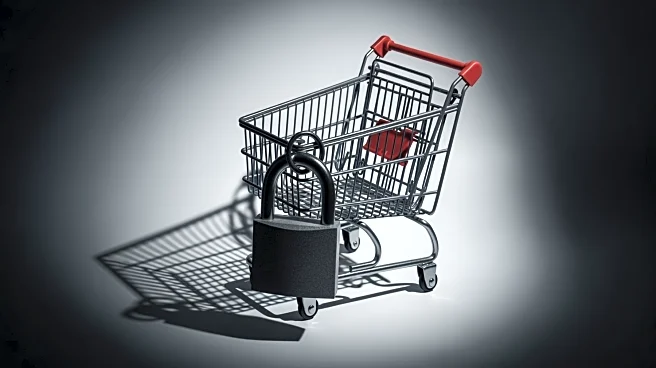What's Happening?
The Trump administration has requested a federal appeals court to block a judge's order mandating full SNAP food benefits for November during the ongoing government shutdown. The administration argues that it lacks sufficient funds to comply with the order,
proposing partial payments instead. Despite the court's directive, some states like California and Wisconsin have begun distributing full benefits, while others face uncertainty.
Why It's Important?
The SNAP program is vital for millions of Americans, particularly low-income families, who rely on it for food security. The administration's appeal highlights the financial strain caused by the government shutdown, affecting essential services. The situation underscores the broader impact of political stalemates on vulnerable populations, potentially leading to increased food insecurity and economic hardship.
What's Next?
The legal battle over SNAP payments is likely to continue, with potential implications for future government shutdowns and budget negotiations. States may seek alternative funding sources to ensure food aid distribution, while advocacy groups could intensify pressure on the administration to comply with court orders. Congressional action may be necessary to resolve funding issues and prevent similar crises.
Beyond the Headlines
The dispute raises ethical questions about the government's responsibility to provide for its citizens during fiscal emergencies. It also highlights the challenges of balancing budget constraints with social welfare obligations, potentially influencing future policy debates on government spending and social programs.














